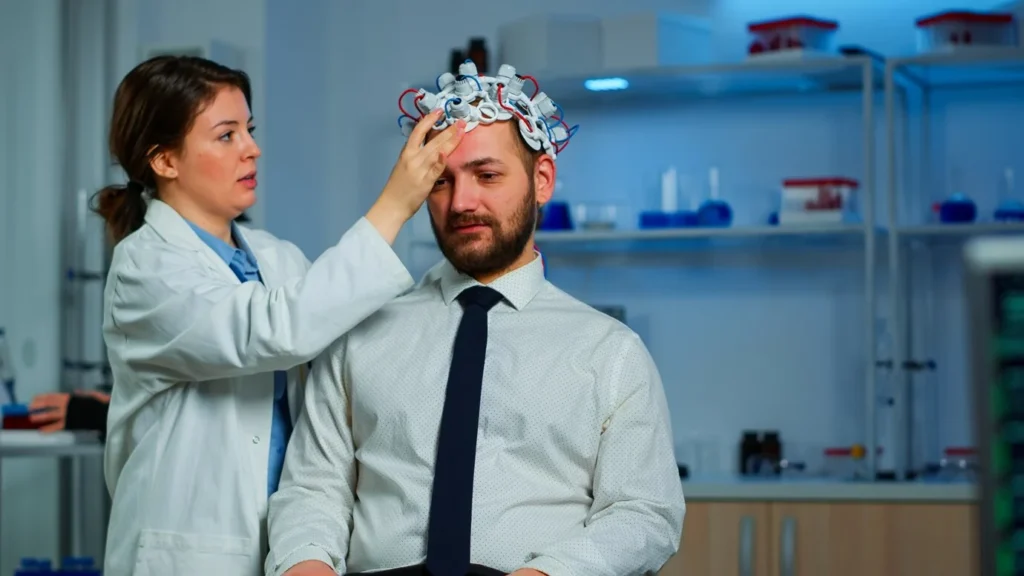Brain health isn’t just a concern for older adults anymore. More people than ever are paying attention to how well their brains function, and for good reason. Cognitive decline, memory lapses, and mental fatigue don’t just show up in later years—they can creep in at any age, affecting productivity, focus, and overall well-being. The good news? Just like you can train your body to be much stronger, you can do the same for your brain.
From improving memory to reducing inflammation, people are looking for ways to boost neurological function and maintain mental clarity for the long haul. If you’re wondering why brain health is such a growing focus—and what you can do to improve it—here’s what you need to know.
ALSO READ: Kecveto: A Multifaceted Fitness Challenge
Boosting Memory for all Ages
Forgetfulness isn’t just frustrating—it can be a sign that your brain needs more support. With more people looking for ways to stay sharp, interest in natural remedies for memory is on the rise. Certain herbs and lifestyle adjustments can support cognitive function and improve recall.
Nootropic herbs including ginkgo biloba and bacopa monnieri have been used for centuries to enhance memory and focus. Omega-3 fatty acids in different foods like walnuts and fatty fish, play a key role in brain cell communication. Even simple habits like practicing mindfulness and reducing stress can make a noticeable difference in how well the brain retains information.
Reducing Inflammation Improves Brain Function
Did you know that inflammation is often at the root of many chronic health problems? The brain is no exception. Long-term inflammation can interfere with neurological function, contributing to brain fog, mood disorders, and even neurodegenerative diseases. That’s why many people are turning to natural anti-inflammatory solutions to keep their brains in peak condition.
Certain tinctures are gaining attention for their ability to fight inflammation and support brain health. Cannabinoid-based remedies are particularly popular, with debates surrounding CBC vs CBD leading to increased interest in their unique benefits. CBC (cannabichromene) and CBD (cannabidiol) both have potential anti-inflammatory properties, but they work differently in the body. One is known for its calming and neuroprotective effects, and the other may have a greater impact on reducing inflammation that affects brain function.
Other natural anti-inflammatory options include turmeric, which contains curcumin—a compound known for its brain-boosting benefits—along with resveratrol, found in grapes and red wine, which has been linked to better cognitive health. As more people realize the connection between inflammation and brain fog, they’re making changes in their diets and supplement routines to keep their minds clear and sharp.
Modern Lifestyle and Brain Fatigue
From endless screen time to constant multitasking, today’s lifestyle isn’t exactly designed for optimal brain function. Information overload, lack of sleep, and chronic stress all take a toll on cognitive performance. That’s why more people are focusing on brain health—not because they’re worried about aging, but because they’re trying to keep up with daily demands.
Reducing mental fatigue starts with better habits. Sleep plays a very important part of memory consolidation and problem-solving, yet many people sacrifice rest for productivity. Regular movement, whether it’s yoga or a simple walk outside, improves circulation and helps the brain function more efficiently. Even something as simple as taking breaks from screens and engaging in real-world interactions can give the brain a much-needed reset.
Stress Management for Brain Health
High cortisol levels, the hormone released during stressful situations, can shrink the hippocampus—the part of the brain responsible for memory and learning. Over time, unmanaged stress can lead to cognitive decline, anxiety, and even depression.
That’s why stress management is becoming a key part of brain health strategies. Meditation, deep breathing exercises, and even creative activities like painting or playing music help lower cortisol levels and improve mental resilience. Adaptogenic herbs like ashwagandha and rhodiola are gaining in popularity for their ability to better help the body adapt to stress and maintain more balance.
People aren’t just managing stress for emotional well-being—they’re doing it for cognitive longevity. By finding ways to keep stress in check, they’re protecting their brains from long-term damage and ensuring they stay mentally sharp no matter what life throws at them.
Lifelong Learning and Brain Health
The phrase “use it or lose it” applies to the brain as much as it does to the body. Mental stimulation is essential for keeping neural pathways active and preventing cognitive decline. That’s why more people are seeking out ways to challenge their minds, whether through learning to speak a new language, playing an instrument, or engaging in problem-solving activities.
Reading, puzzles, and strategic games like chess have also been shown to improve cognitive function by encouraging the brain to form new connections. Even social interaction plays a role—engaging in meaningful conversations and discussions helps keep the mind active and engaged.
Instead of seeing learning as something that ends after school, people are treating it as a lifelong habit.







